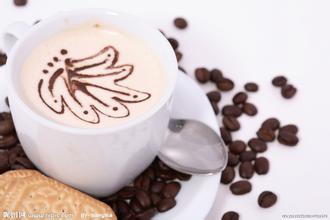Introduction to the planting environment of Salvadoran Himalayan coffee with deep flavor
The National Assembly of El Salvador has a unicameral system, with a total of 84 members, 64 of whom are based on the population of each province.
San Salvador
San Salvador
Proportional distribution, the remaining 20 regardless of provincial origin, according to the number of votes to determine the term of office of 3 years, can be re-elected. The latest parliament was established in May 2015 and its term of office lasts until April 2018, including 35 seats for the nationalist Republican Union, 31 seats for the Marty Front, 11 seats for the Grand Alliance of National Unity, 4 seats for the National Reconciliation Party and 3 seats for other parties. The Speaker is LorenaPe ñ a (Lorena Pena) of the Marty Front, who will serve until 7 November 2016, followed by Guillermo Gallegos, a member of the Grand Union of National Unity, who will replace the Speaker until April 2018. [1]
The government
The latest government of El Salvador was formed in June 2014. The main cabinet members are Vice President Oscar Ortiz (Oscar Ortiz), Foreign Minister Hugo Roger Mart í nez Bonillia, Finance Minister Carlos C á ceres, economy Minister Tharsis Salom ó n L ó pez, Defense Minister David Mungui í a Pay é s. Sandra Eddiwell Guevara Perez, Minister of Labour and Social Security (female, Sandra Edibel Guevara P é rez), Minister of Agriculture Orestes Autes (Orestes Ortez), Minister of Public Health Violeta Menshiwar (female, Violeta Menj í var), Minister of Public works, Transport, Housing and Urban Development Gerson Mart í nez, Minister of Environment and Natural Resources Lina Lina Pohl Tourism Minister Jose Napole ó n Duarte. [1]
Judicature
The judicial power of El Salvador is exercised by the Supreme Court, the Procurator-General's Office, etc. The Supreme Court is composed of 15 judges (including the President) and is elected by Parliament. The President of the Supreme Court shall serve for a term of five years and shall be eligible for re-election. Judges are appointed for a term of nine years, with 1/3 re-elected every three years. The Attorney General shall be elected by Parliament for a term of three years and shall be eligible for re-election. Oscar Armando Pineda Navas (Oscar Armando Pineda Navas), president of the Supreme Court, took office in August 2014. Attorney General Sonia Elizabeth Cortez de Madeleine (female, Sonia Elizabeth Cort é z de Madriz), took office in January 2010 and was re-elected in January 2013
Don't underestimate El Salvador's coffee production. In its heyday, it was once the fourth largest coffee producer in the world, but decades of civil war almost dragged down the coffee industry. fortunately, the war has stopped in recent years, and the coffee industry has come back to life. The only benefit that the civil war brought to the Salvadoran country was that the farmers' fields were barren and failed to catch up with the most popular Katimo exposure train in the past two decades, thus preserving the ancient varieties of bourbon and Tibica, that is to say, El Salvador still uses the most traditional shade planting, which is of positive significance to the aroma of coffee. In 2005, the Salvadoran mixed-race variety Pacamara boasted in coe, which confused many international cup testers and did not know how to score it. They never expected that this hybrid bean not only broke the mellow boundary of coffee, but also expanded the visibility of Salvadoran coffee. El Salvador boutique coffee is concentrated in the volcanic areas of Santa Ana in the west and Charantan fruit in the northwest. In recent years, the top 10 cup tests are almost entirely from these two producing areas, with an altitude of about 9-1500 meters, mainly bourbon (68%), followed by Pacas (29%), mixed-race Pakamara, Durai and Kaddura account for only 3%.
The coffee harvest lasts from November to March. The fresh fruit of coffee is picked by hand.
On the whole, Salvadoran coffee inherits the mild quality of Sino-American coffee, which is soft, slightly sour and has beautiful sweetness. At the same time, it also has its own characteristics: the aromatic taste is slightly sour and very soft; it is pure and has no miscellaneous flavor, and the taste balance is excellent; the smooth feeling like cream chocolate is impressive; the dense feeling of coffee in the mouth gives the coffee a deep taste and a long finish.

Important Notice :
前街咖啡 FrontStreet Coffee has moved to new addredd:
FrontStreet Coffee Address: 315,Donghua East Road,GuangZhou
Tel:020 38364473
- Prev

Introduction to the Environmental Flavor and Taste of the Fine Coffee Bean growing area in Yersaro, Costa Rica
All the coffee trees planted in Costa Rica are Arabica coffee trees. through improvement, the quality of coffee beans is better and more stable. in order to facilitate picking, coffee trees are kept at a height of about 2 meters through continuous pruning. The coffee that people eat is the taste of the seeds in the fruit that are brewed in water. After picking raw coffee beans, the peel, pulp, seed film and sun exposure must be removed.
- Next

Taste mellow, neutral Costa Rican St. Roman coffee flavor manor introduction
Other political parties in Costa Rica include the National Baath Party, the Broad Front Party and the whole people joining the Party, but their influence is relatively relatively large.
Related
- Detailed explanation of Jadeite planting Land in Panamanian Jadeite Manor introduction to the grading system of Jadeite competitive bidding, Red bid, Green bid and Rose Summer
- Story of Coffee planting in Brenka region of Costa Rica Stonehenge Manor anaerobic heavy honey treatment of flavor mouth
- What's on the barrel of Blue Mountain Coffee beans?
- Can American coffee also pull flowers? How to use hot American style to pull out a good-looking pattern?
- Can you make a cold extract with coffee beans? What is the right proportion for cold-extracted coffee formula?
- Indonesian PWN Gold Mandrine Coffee Origin Features Flavor How to Chong? Mandolin coffee is American.
- A brief introduction to the flavor characteristics of Brazilian yellow bourbon coffee beans
- What is the effect of different water quality on the flavor of cold-extracted coffee? What kind of water is best for brewing coffee?
- Why do you think of Rose Summer whenever you mention Panamanian coffee?
- Introduction to the characteristics of authentic blue mountain coffee bean producing areas? What is the CIB Coffee Authority in Jamaica?

